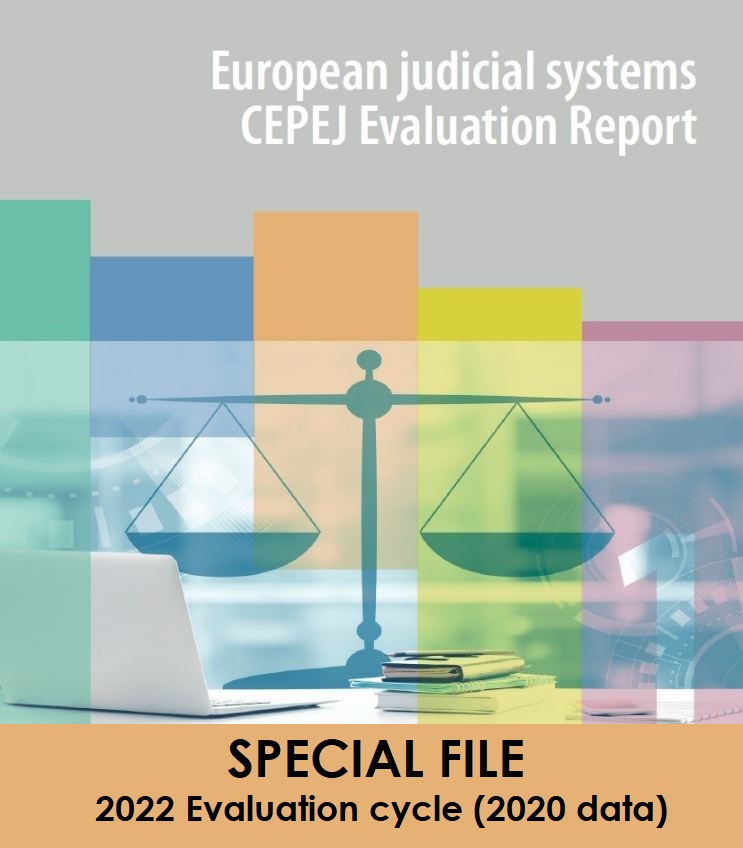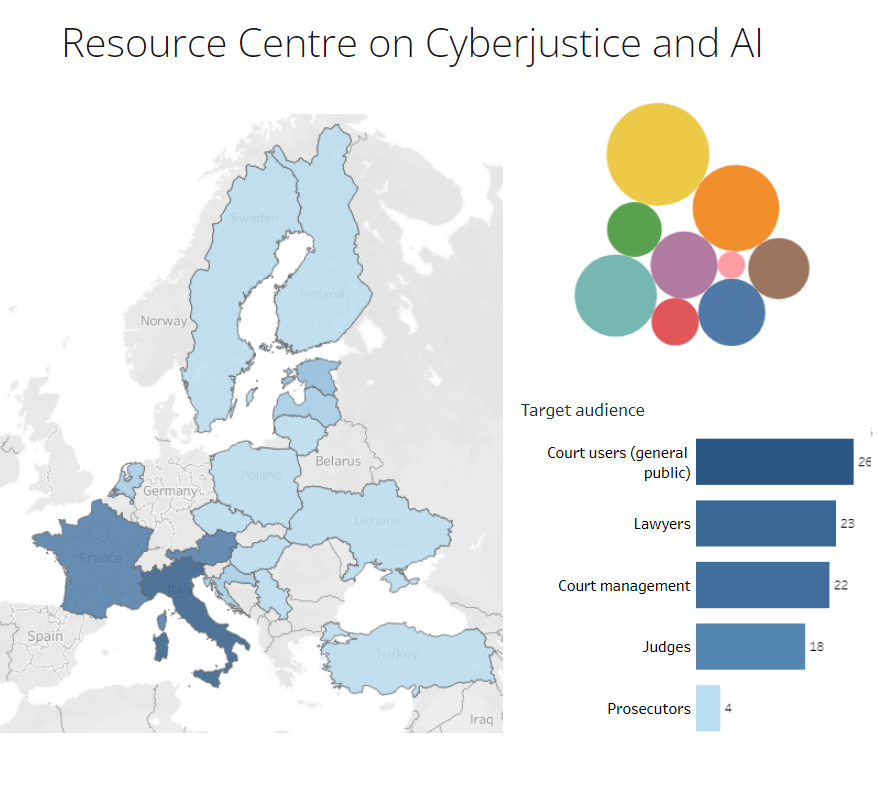Cyberjustice and artificial intelligence used in the field of justice
Developments in digital justice appear as real opportunities to improve the quality and efficiency of justice. At the same time, they constitute new challenges for the respect of the fundamental principles of the trial, essential guarantees of our judicial systems, such as the primacy of the rule of law, the independence and impartiality of the judge, the principle of adversarial proceedings or the protection of fundamental freedoms.

The Working Group on Cyberjustice and Artificial Intelligence (CEPEJ-GT-CYBERJUST), set up by the CEPEJ at its 33rd plenary meeting in December 2019, is entrusted by the CEPEJ with the task of "developing tools with a view to offering a framework and guarantees to member States and legal professionals wishing to create or use Information and Communication Technologies and/or artificial intelligence mechanisms in judicial systems in order to improve the efficiency and quality of justice". This work should be implemented in co-ordination with the work of other Council of Europe bodies in this field, in particular the European Committee on Legal Co-operation (CDCJ) and the Committee on Artificial Intelligence (CAI).
The tools to developed by the Working Group concern topics as varied as quality criteria for videoconferencing, artificial intelligence used in alternative methods of dispute resolution or enforcement of court decisions or court proceedings in a digital context.
The group’s work is guided by the 2022 – 2025 CEPEJ Action plan: “Digitalisation for a better justice”, emphasizing the CEPEJ’s commitment to accompany States and courts in a successful transition towards digitalisation of justice in line with European standards and in particular Article 6 of the European Convention of Human Rights.
 Working Group on Cyberjustice and Artificial Intelligence (CEPEJ-GT-CYBERJUST)
Working Group on Cyberjustice and Artificial Intelligence (CEPEJ-GT-CYBERJUST)
Information note on the Use of Generative AI by judicial professionals in a work-related context (2/2024)
Guidelines on online alternative dispute resolution (12/2023)
Guide on judicial e-auctions (6/2023)
Comparative Study on the use of judicial e-auctions in the Council of Europe Member States (6/2023)
Guidelines on electronic court filing (e-filing) and digitalisation of courts (12/2021)
Guidelines on videoconferencing in judicial proceedings (6/2021) and Selected National Good practices (6/2021)
Toolkit for the implementation of the Guidelines on Cyberjustice (6/2019)
The CEPEJ Artificial Intelligence Advisory Body (AIAB) provides expert advice on Artificial Intelligence (AI) related issues in the judicial environment. It was established in 2022 to support the CEPEJ in monitoring the actual emergence of AI applications in the justice sector and to implement related strategies as well as to contribute to the reflection on the use of AI in justice systems with respect to fundamental rights.
The Resource Centre on Cyberjustice and AI serves as a publicly accessible focal point for reliable information on AI systems and other key cyberjustice tools applied in the digital transformation of the judiciary. It shall help to gain an overview of such systems and tools, providing a starting point for further examination on their risks and benefits for professional and end-users in line with the “European ethical Charter on the use of AI in judicial systems and their environment“.
The European Cyberjustice Network (ECN) allows the exchange of good practices and helps to define future initiatives by the Council of Europe to support its member States in the digital transformation of their judiciary in line with Human Rights standards.
A key tool remains the first European Ethical Charter on the use of artificial intelligence in judicial systems, adopted by the CEPEJ in December 2018. This innovative text, prepared by the CEPEJ Working Group on quality of justice (CEPEJ-GT-QUAL), sets out principles to guide the development of artificial intelligence tools in European judicial systems.
Links:
Past work and reflections of the CEPEJ concerning Cyberjustice and Artificial Intelligence in the field of justice:
- Special file "European Ethical Charter on the Use of Artificial Intelligence in Judicial Systems and their environment"
- CEPEJ and Courts Administration of Latvia conference on "Artificial Intelligence at the Service of the Judiciary" in Riga (Latvia), on 27 September 2018 - videos, speeches, presentations, biographies, resources
- CEPEJ Newsletter "Predictive justice and artificial intelligence (AI)”
- Drive change towards cyberjustice
Collaborative workspaces:







